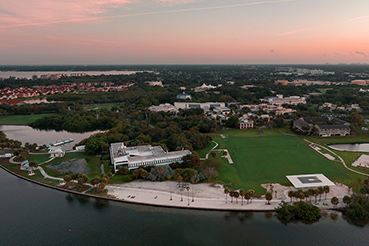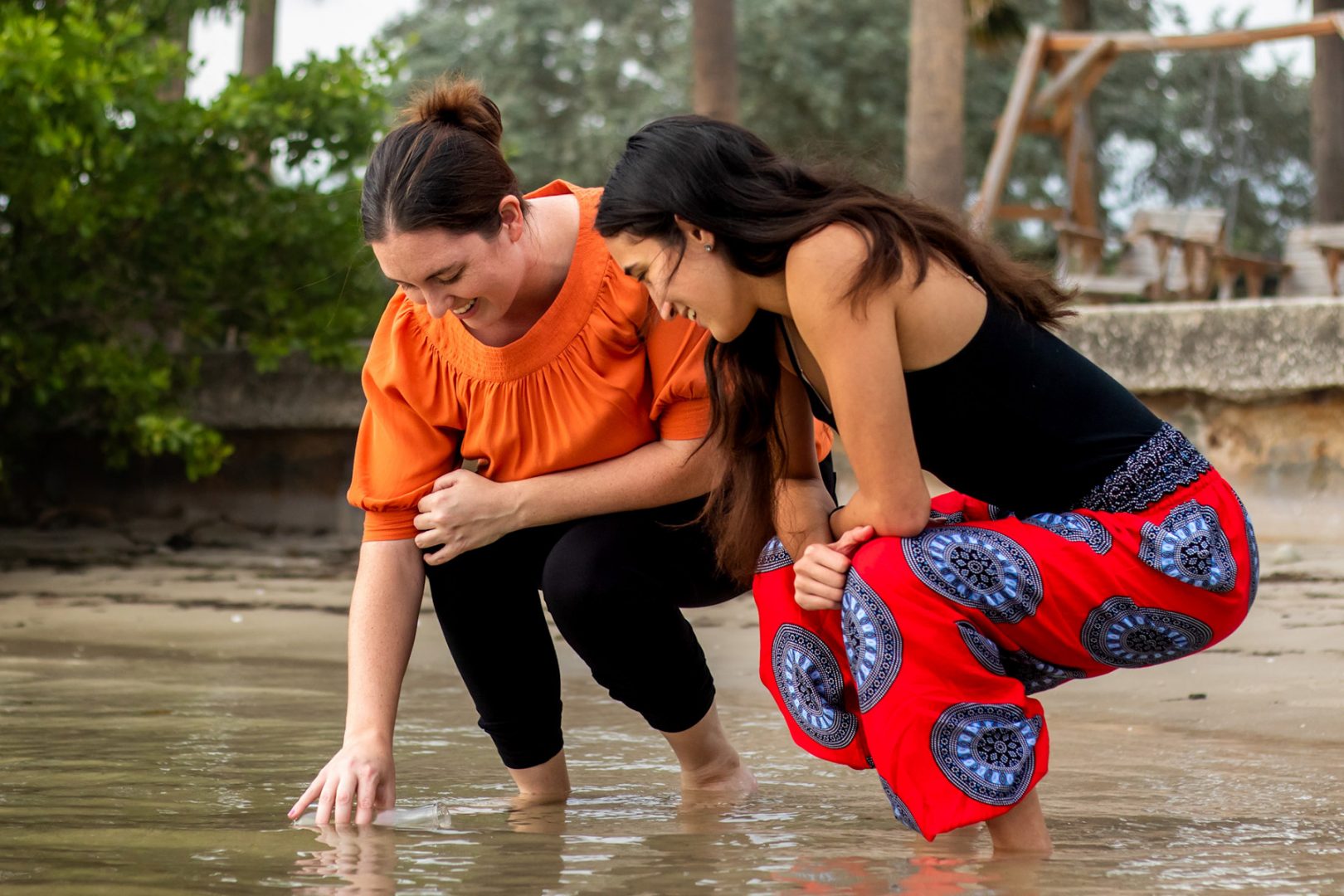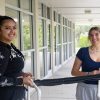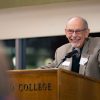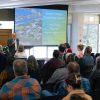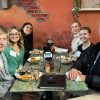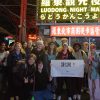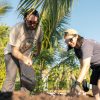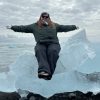Assistant Professor of Biology Whitney Bullock, Ph.D., had heard of Eckerd College’s South Beach but had never visited until her Genetics and Molecular Biology students took her across campus for a water-sampling experiment.
“They teach me the fun things they know,” she says in between laughs. “I’ve learned a lot about Eckerd from them in this experiment.”
Bullock joined the College in August after spending the pandemic working at the Indiana Biosciences Research Institute and Indiana University School of Medicine, where she collaborated with chemists, biologists, doctors and other researchers to develop medicines that can simulate the positive effects of exercise for paraplegics and others unable to engage in physical activity themselves. She loved the challenging work and environment, but she missed the classroom.
“I love teaching. Getting to help students practice their skills and figure out why they love science and to have that student interaction was not something I was able to find in a strictly research setting,” Bullock recalls.
She was interested in leaving Indiana University, where she’d received her Ph.D. in 2019, for sunnier climes and had spent many years vacationing in the Tampa Bay area, which put Eckerd College on her radar for possible next moves.
“I also love the beach. I knew I wanted to be somewhere in driving distance from the coast,” Bullock says. “When I pulled out a map and started to look, Eckerd really stood out. It was a small liberal arts college. I wanted to work closely with students in a place that was great to live in. So I waited for a job ad to appear.”
When it did, Bullock applied and did her interviews virtually, immediately taken by the friendliness of the community—even via Zoom. “A professor actually carried me down the hall on a laptop, and other faculty were waving hello and speaking to me as we passed by,” she remembers.
Bullock says she’s always been fascinated by biology because it presents a puzzle to solve about how life works. Her middle school dream was to be a veterinarian; however, an introduction to laboratory research sent her on the path to professorship. Her research interests focus on bone and muscle and how activity affects bone health and influences conditions such as osteoporosis. She’s working on developing a course on endocrinology geared toward biology students.
Until then, she may have her hands full teaching “Cells and Genes” and “Genetics and Molecular Biology” courses, serving as a co-sponsor for the Science Outreach Club, getting to know more about Eckerd and its students, and continuing her research. Her lab, where she continues her work studying the effects of manual stimulation on bone health, is staffed with Eckerd students eager to learn who are encouraged to design their own independent research projects.
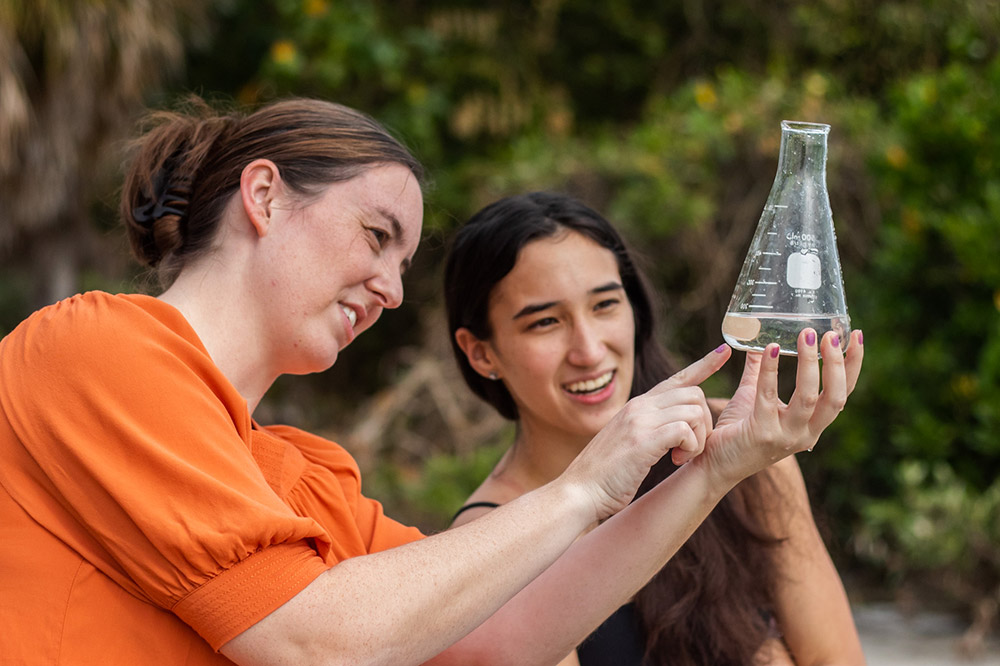
“I really enjoy her class because it is more catered to my study style of doing further reading for understanding outside of class,” said Aarushi Gandhi, a sophomore biology student from Bangalore, India, and president of the Science Outreach Club. “It’s also great that she worked at [Indiana University’s] medical school and that she has those connections to bring to pre-health students. She is aware of the kinds of things we’ll need to know and have on our resumes if we want to go to medical school.”
Aarushi also was one of four students who adapted one of Bullock’s presentations to share with Pinellas County elementary schoolchildren at October’s St. Petersburg Science Festival. The video What Odd Teeth You Have! synthesized college-level information about the size, shape and purposes of animal teeth to show evolutionary relationships.
“It’s one of the presentations I’ve done before, so I asked if any students wanted to adapt it,” Bullock says. “Science communication is critically important because being able to speak with the general public about science has become more important than ever.”
The Science Festival was one of many chances Bullock works into her curriculum for students to polish their science communication skills. They are required to write a persuasive paper on an ethical topic in genetics and are asked to give 30-second presentations explaining a genetics topic in the news. All the experience adds up to making them more comfortable explaining the processes and outcomes. It also foments questions, the basis of all scientific research.
“When we were sampling water out at Saunders Point, there was a bike sunken just off the seawall that looked to have been there awhile,” Bullock says. “I wonder what that will mean for the bacteria in that water sample.”

